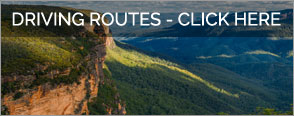When travelling in rural areas, be a safe driver by following these tips:
- Plan your trip and use a detailed map.
- Make sure your vehicle is in a reliable roadworthy condition.
- When planning a long drive have a good night's sleep before the trip, share the driving with your companions and stop for a rest at least every two hours.
- Don't drink alcohol and drive.
- Carry a vehicle first aid kit.
- Seek local advice on current road conditions (roads can be affected by rain, floods and snow).
- Road conditions vary from bitumen surfaces to gravel and dirt, and can change without notice. Be careful of potholes, soft road edges, narrow bridges and dusty roads.
- Keep left on bends and always assume there is a vehicle coming the other way.
- Constantly scan for dangerous situations and drive at a speed that suits the conditions.
- Slow down in rain, in fog, at night and on unsealed roads.
- Watch out for livestock, kangaroos and other wildlife crossing the road (particularly just near sunrise or near sunset).
- Stay alert for large trucks, bicycles and motor bikes.
- Observe all road signs.
- In winter beware of frost and ice.
- On remote roads, carry emergency supplies including water, food and blankets/sleeping bags in case of breakdown.
- Note that mobile phone reception is unavailable in many parts of the Greater Blue Mountains.
- Pets: Since most of the Discovery Trails traverse national parks (where pets are not allowed), please leave them at home.





